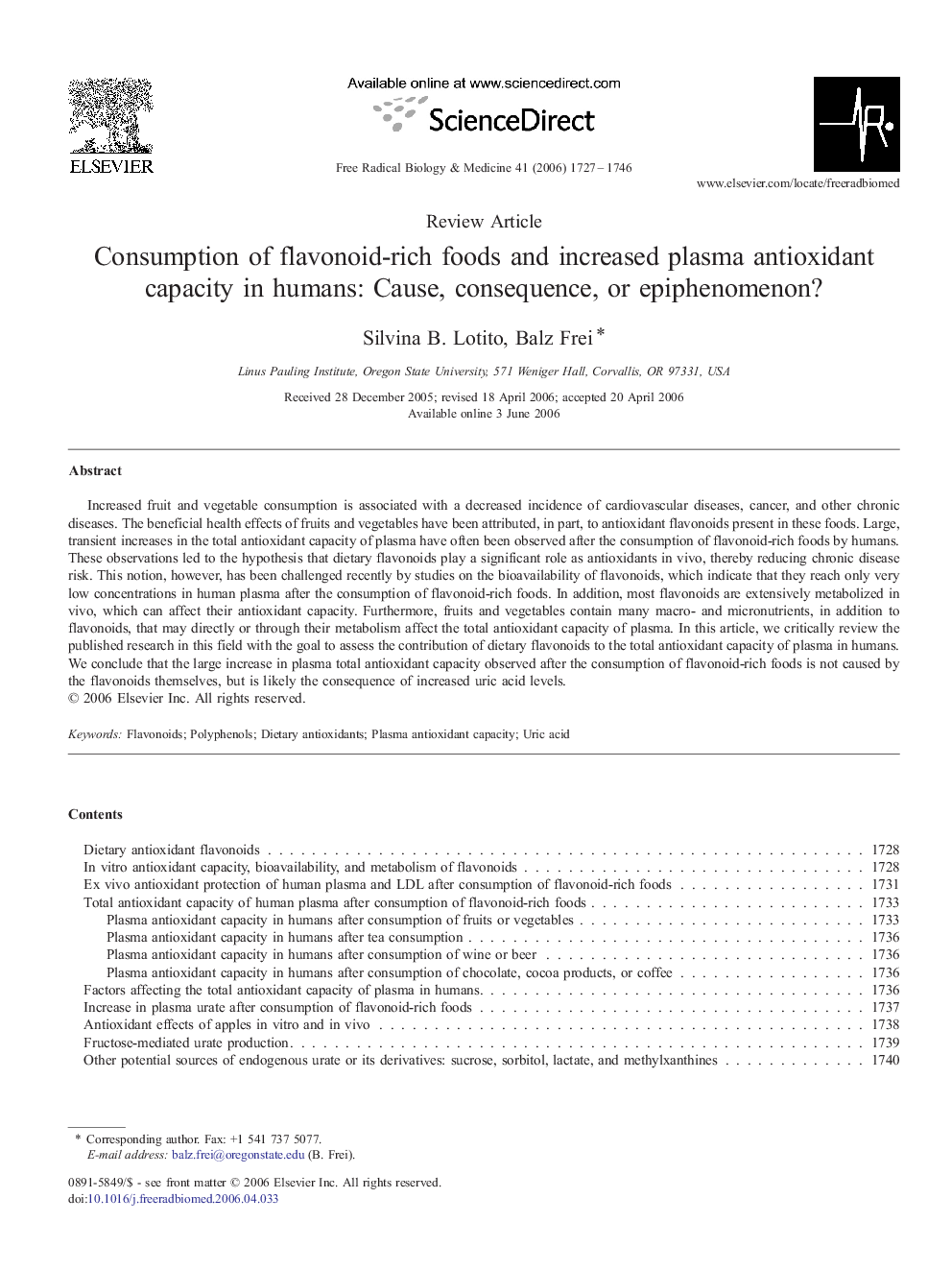| Article ID | Journal | Published Year | Pages | File Type |
|---|---|---|---|---|
| 1911938 | Free Radical Biology and Medicine | 2006 | 20 Pages |
Increased fruit and vegetable consumption is associated with a decreased incidence of cardiovascular diseases, cancer, and other chronic diseases. The beneficial health effects of fruits and vegetables have been attributed, in part, to antioxidant flavonoids present in these foods. Large, transient increases in the total antioxidant capacity of plasma have often been observed after the consumption of flavonoid-rich foods by humans. These observations led to the hypothesis that dietary flavonoids play a significant role as antioxidants in vivo, thereby reducing chronic disease risk. This notion, however, has been challenged recently by studies on the bioavailability of flavonoids, which indicate that they reach only very low concentrations in human plasma after the consumption of flavonoid-rich foods. In addition, most flavonoids are extensively metabolized in vivo, which can affect their antioxidant capacity. Furthermore, fruits and vegetables contain many macro- and micronutrients, in addition to flavonoids, that may directly or through their metabolism affect the total antioxidant capacity of plasma. In this article, we critically review the published research in this field with the goal to assess the contribution of dietary flavonoids to the total antioxidant capacity of plasma in humans. We conclude that the large increase in plasma total antioxidant capacity observed after the consumption of flavonoid-rich foods is not caused by the flavonoids themselves, but is likely the consequence of increased uric acid levels.
